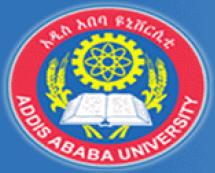TRAFIG Transnational Figurations of Displacement
TRAFIG, Transnational Figurations of Displacement, is an EU-funded Horizon 2020 research and innovation project. From 2019 to 2021, 12 partner organisations will investigate long-lasting displacement situations at multiple sites in Asia, Africa and Europe and analyse options to improve displaced people’s lives.
Displacement is normally regarded as a temporary phenomenon. Yet, more than 13 million people—two thirds of 20 million refugees worldwide—have been in exile for long periods of time without prospects of return, resettlement or local integration. The number of internally displaced persons who cannot return is unknown. Both groups find themselves in protracted displacement.
The project aims at generating new knowledge to help develop solutions for protracted displacement that are tailored to the needs and capacities of persons affected by displacement. TRAFIG looks at how transnational and local networks as well as mobility are used as resources by displaced people to manage their everyday lives.
TRAFIG will:
- provide academic evidence on refugee movements and protracted displacement
- analyse which conditions could help to improve displaced people’s everyday lives
- inform policymakers on how to develop solutions to protracted displacement.
TRAFIG introduces a novel perspective on protracted displacement situations (PDS) that will improve the protection and resilience of refugees and enhance trust and cooperation between refugees and host communities.
The project considers the transnational and local connectivity of displaced people and host communities as well as their capability of mobility as socioeconomic and sociopsychological resources that displaced people use and upon which their resilience relies.
The project will develop a rapid assessment tool to identify the most vulnerable groups in PDS and to analyse interactions between displaced and host communities. As an evidence-based tool for creating impact, it will support policymakers and practitioners to enhance the self-reliance of displaced people as well as host-refugees relations through tailored programming and policy development.
The project team cooperates closely with key stakeholders throughout the entire life cycle of the project. Our research is based on a novel concept of transnational figurations of displacement that combines the figuration model – a meso-level approach emphasizing the networks of interdependent human beings – with the transnationalism approach and state-of-the-art knowledge on forced displacement. Through comparative empirical research, both qualitative and quantitative, in camps and urban settings at sites in Asia, Africa, and Europe, TRAFIG will analyze why displaced people live in vulnerable situations in host countries, how they sustain their livelihoods as well as how policy and humanitarian practice can better support their self-reliance.
The project team will also trace refugees’ networks of interaction and support beyond their place of living and ask how these transnational connections shape their current situation and their future mobility trajectories. Last but not least, it seeks to better understand the relations between refugees and host communities and investigates the medium and long-term economic impacts of displacement.
TRAFIG will answer the following questions:
(1) How do displaced people gain access to and make use of humanitarian and migration policies and programmes?
(2) Why and how do displaced people live in vulnerable situations and sustain their livelihoods? How can policy support their self-reliance?
(3) How do transnational networks shape refugees’ experiences and trajectories?
(4) Which processes structure relations between displaced people and host communities?
(5) What are the medium and long-term economic impacts of PDS?
Comparative empirical research in camps and urban settings at sites in Asia, Africa, and Europe
The project has 11 research partners from Austria, Ethiopia, Germany, Greece, Italy, Jordan, the Netherlands, Norway, Pakistan, United Kingdom, will closely cooperate with key stakeholders throughout the entire life cycle of the project.
The European Commission funds the TRAFIG project within its Horizon2020 research program. BICC is coordinating the three year project. The partners in this excellent interdisciplinary and international research consortium are Addis Ababa University in Ethiopia, Aristotle University of Thessaloniki in Greece, Chr. Michelsen Institute (CMI) in Norway, International and European Forum on Migration (FIERI) in Italy, International Centre for Migration Policy Development (ICMPD) and Danube University Krems in Austria, Society for Human Rights and Prisoners' Aid (SHARP) in Pakistan, Sussex Centre for Migration Research in the United Kingdom, University of Leiden in the Netherlands, and Yarmouk University in Jordan.






